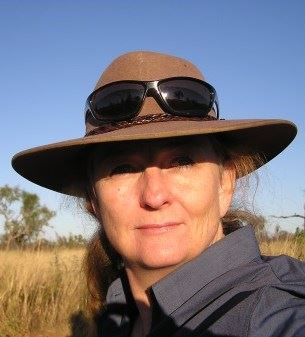 From the President
From the President
It has been a busy time in the lead-up to the 2018 conference. We had excellent applications for the range of prizes offered by the society, demonstrating the breadth of work currently being undertaken across Australia and New Zealand. It was particularly good to have so many applications from practitioners, who bear the brunt of the hard work in the field.
Thank you to those of you who have responded and input into the AWMS submission to the Senate Inquiry into the impact of feral deer, pigs and goats in Australia. There were a range of responses which captured the skills and knowledge of AWMS members. It has been a learning experience for me, highlighting the complexities of working across disciplines and species.
AWMS is often asked for our response on various topics of relevance. The AWMS Position Statements are an important go-to source of information regarding particular issues. I would like to strongly encourage all AWMS members to consider whether there is an issue that you believe should be addressed by a Position Statement and volunteer to lead writing one. Having material available that has already been read and approved by our membership means that we can respond in a timely fashion, capturing the consensus of the society. A couple of ideas have been raised as part of our Senate Inquiry response, which we will pursue.
I look forward to the 2018 AWMS conference in Hobart – have fun preparing your talks and see you there!
Trish

 from the editor
from the editor
PHEW! I don't know about you, but this year has been BUSY! I wouldn't have it any other way though...I'm happiest when I have at least three things on the go at once. Having said that, I am very much looking forward to letting my hair down at the conference this year. I've never been to Hobart, so I'm looking forward to it.
In this issue we have the final report from last years Postgraduate Award Winner, Laura Tan, with her work on adaptive management of corvid predation on Little Penguins. This year there are also a number of Executive Committee positions up for nomination. If you would like to get more involved in AWMS, then this is a great way to do it. The only requirement is that you are an AWMS member and that your nomination for a position is supported by two existing members.
Our AGM is also coming up at this year's conference (see the notice further in this newsletter for details). If you have anything that you would like to put on the agenda, please contact the AWMS secretary, Lily (info@awms.org.au). Finally, next year's conference looks like it might be held in Darwin. Nothing has been confirmed yet, so watch this space. AWMS has never been to Darwin as far as I can see. It's going to be hot, but for those of you that don't like the heat, don't worry, they have air conditioning. If you would like to get involved in the organisation of next year's conference, please contact our Conference Liaison Officer Konnie (conference @awms.org.au) or catch up with her at this year's conference.
For those of you going, see you in Hobart. For the rest of you...until March 2018 :)
 agm announcement
agm announcement
Where: University of Tasmania, Social Science room 211
When: Wednesday 5 December 2018
Time: 4.30pm
2017 AGM minutes
call for committee positions
This year sees a number of committee positions up for nomination. All committee positions become available every two years. Members who currently hold these committee positions are eligible to re-nominate. The following positions are open for nomination:
- President
- Secretary
- NZ Student Representative
All candidates must be members of AWMS and all candidates require a member to nominate them. If you would like to nominate someone for a position, please ensure you speak to that person first to gauge their interest in the position. Please send all nominations, including letters/emails of acceptance of the nomination, to info@awms.org.au

postgraduate student award final report
Adaptive management methods for corvid predation on a Little Penguin
Laura Tan
auraxtan@gmail.com
Last year I gratefully received the AWMS Postgraduate Student Research Award for my PhD project examining adaptive management methods for corvid predation on a Little Penguin (Eudyptula minor) population on Phillip Island, Victoria, Australia. Corvids can be problematic predators for a number of vulnerable bird species; their intelligence and generalist foraging habits typically allow them to adapt well to human-influenced environments and exploit vulnerable prey. Part of the project is examining genetic relatedness of culprit birds in our study population to examine how management should target this issue (i.e. are all birds problematic and should management of the population be targeted generally, or should we only be targeting egg-eaters and their relatives?). We are also conducting DNA diet analysis of raven faecal samples to determine if we can identify culprit birds through penguin detection in faeces, and also to gain insight into overall raven diet.
The AWMS Postgraduate Student Research Award has greatly assisted our ability to progress in these areas of our research. We used the funds from the award to purchase vital laboratory consumables for PCR work and DNA sequencing; we are currently examining our genotyping results, and moving forward on DNA diet analysis of our faecal samples. We greatly appreciate the AWMS award which has helped us so much, and look forward to sharing our results.

2019 conference announcement
Nothing has been booked yet, but the committee is looking at taking AWMS to Darwin. Normally every third year we head to New Zealand, however, there are large number of national and international conferences with ecology, conservation and wildlife management themes happening in NZ in the second half of next year. Because of this, the Committee felt that it would be better to hold off on heading to NZ. As soon as we've locked something in we'll let you know!